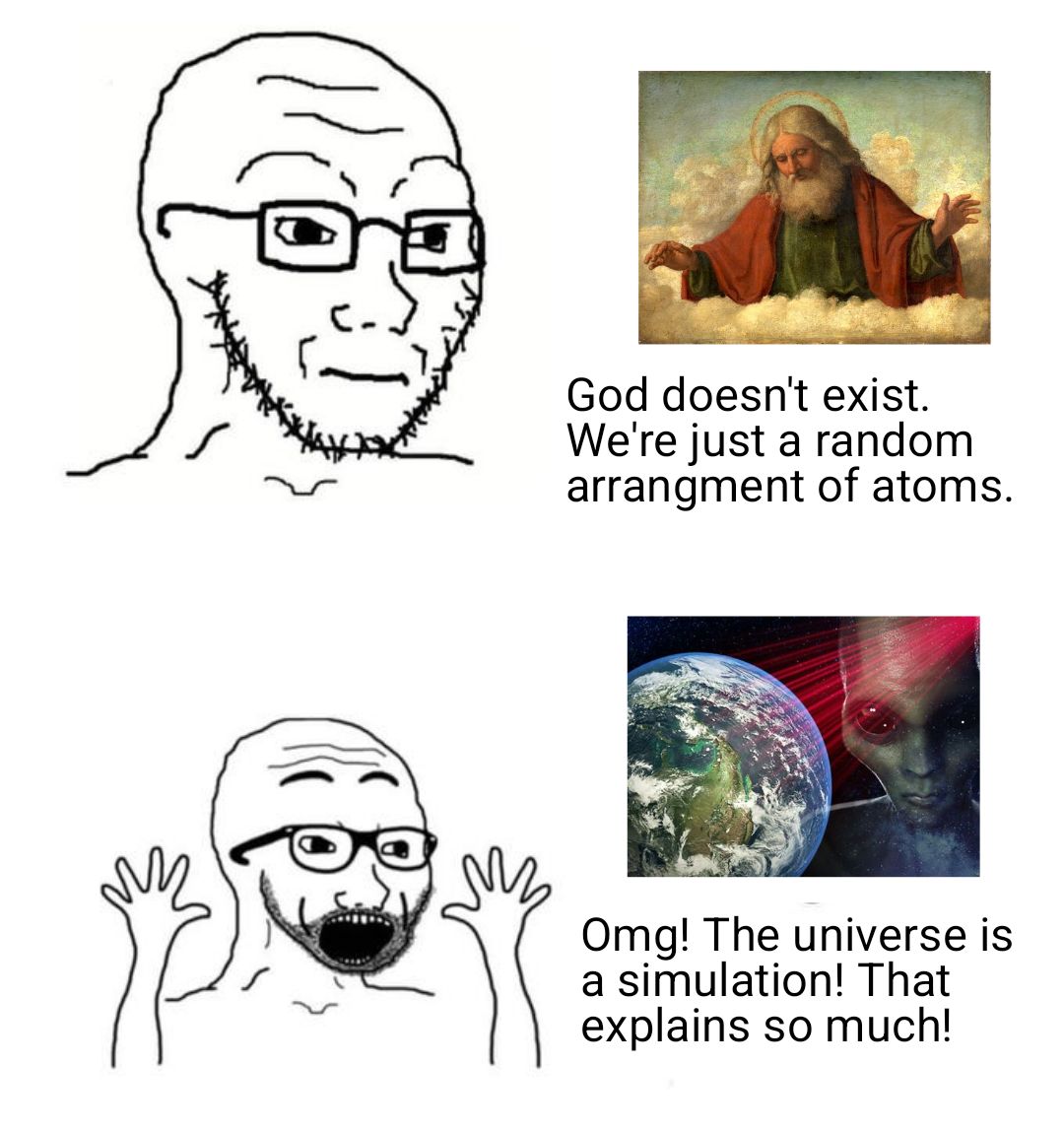this post was submitted on 22 Dec 2023
393 points (76.5% liked)
Memes
52391 readers
538 users here now
Rules:
- Be civil and nice.
- Try not to excessively repost, as a rule of thumb, wait at least 2 months to do it if you have to.
founded 6 years ago
MODERATORS
you are viewing a single comment's thread
view the rest of the comments
view the rest of the comments

The "belief" we're in a simulation is more like a interesting idea than something people organize their lives around. Is it possible? Yes. Am I going to praise the great programmer every Sunday? No.
The belief in God in most cases is not just belief in some general higher power but a very specific deity with weird morality, silly mythology and bunch of scam artists behind it.
This argument conflates belief with religious practice. The core similarity of both beliefs is that the universe is intelligently designed. And you can believe in the idea of a God without participating in any kind of formal religious practice. That "most" religious belief is wrapped up in a particular religious tradition is ancillary.
Religion's weakest argument is the claim that the world was intelligently designed. When it so clearly isn't.
Simulation theory doesn't claim someone designed all this. They built a simulator where all this evolution and history happened, like emergent gameplay on steroids. It's not the same kind of "design" we're talking about.
Intelligent design is a broad, vague, and intensely mutable concept. It isn't helped by the fact that there's multiple kinds, with the pseudoscientific kind touted by the religious right in America and the more generic, very fucking old "teleological argument" which is also intelligent design at its core. To give a specific example of intelligent design philosophy that isn't directly tied to a belief in a deity as an active participant, you can look at the deists, who believed that the universe's fundamental laws were engineered by a kind of "clock maker" deity who left the universe running under its own principles but doesn't have a direct, guiding hand in individual events. This is still a form of "intelligent design" and closely corresponds to simulation theory. At this point, you are redefining terms to suite your argument. Also, you can't really say the world is or is not intelligently designed, as you have no evidence for either. The only truly "logical" position to hold for any of this is straight agnosticism.